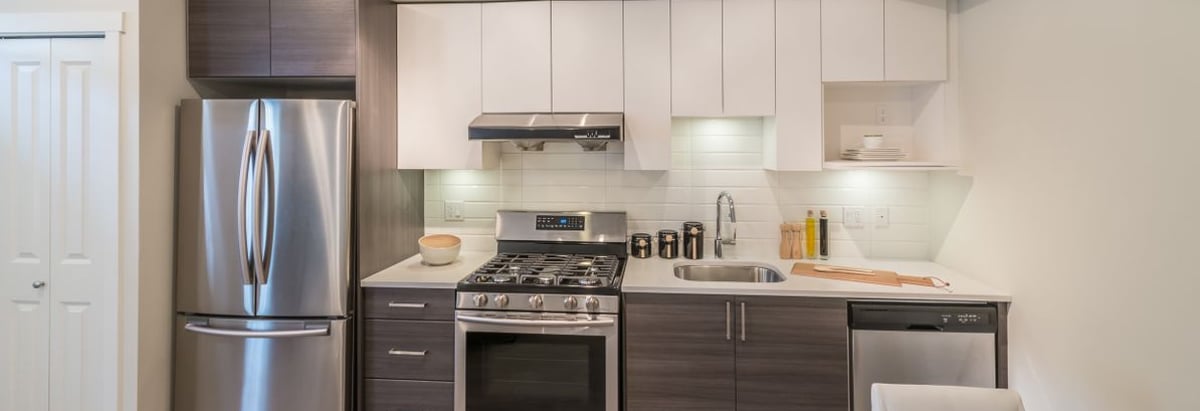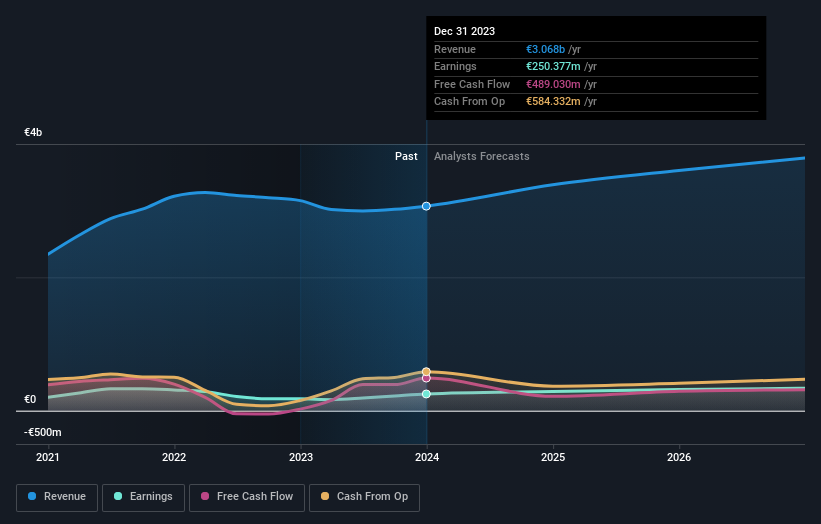- Italy
- /
- Consumer Durables
- /
- BIT:DLG
Despite recent sales, De'Longhi S.p.A. (BIT:DLG) insiders remain the largest stockholders with 54% ownership

Key Insights
- De'Longhi's significant insider ownership suggests inherent interests in company's expansion
- 54% of the company is held by a single shareholder (Giuseppe de' Longhi)
- Recent sales by insiders
A look at the shareholders of De'Longhi S.p.A. (BIT:DLG) can tell us which group is most powerful. The group holding the most number of shares in the company, around 54% to be precise, is individual insiders. That is, the group stands to benefit the most if the stock rises (or lose the most if there is a downturn).
Even though insiders have sold shares recently, the group owns the most numbers of shares in the company and as a result benefitted the most after market cap rose €328m last week.
In the chart below, we zoom in on the different ownership groups of De'Longhi.
See our latest analysis for De'Longhi

What Does The Institutional Ownership Tell Us About De'Longhi?
Many institutions measure their performance against an index that approximates the local market. So they usually pay more attention to companies that are included in major indices.
De'Longhi already has institutions on the share registry. Indeed, they own a respectable stake in the company. This implies the analysts working for those institutions have looked at the stock and they like it. But just like anyone else, they could be wrong. It is not uncommon to see a big share price drop if two large institutional investors try to sell out of a stock at the same time. So it is worth checking the past earnings trajectory of De'Longhi, (below). Of course, keep in mind that there are other factors to consider, too.

We note that hedge funds don't have a meaningful investment in De'Longhi. Our data suggests that Giuseppe de' Longhi, who is also the company's Top Key Executive, holds the most number of shares at 54%. When an insider holds a sizeable amount of a company's stock, investors consider it as a positive sign because it suggests that insiders are willing to have their wealth tied up in the future of the company. With 6.2% and 4.9% of the shares outstanding respectively, Stichting Pensioenfonds ABP and Mawer Investment Management Ltd. are the second and third largest shareholders.
While studying institutional ownership for a company can add value to your research, it is also a good practice to research analyst recommendations to get a deeper understand of a stock's expected performance. There are plenty of analysts covering the stock, so it might be worth seeing what they are forecasting, too.
Insider Ownership Of De'Longhi
While the precise definition of an insider can be subjective, almost everyone considers board members to be insiders. Company management run the business, but the CEO will answer to the board, even if he or she is a member of it.
Insider ownership is positive when it signals leadership are thinking like the true owners of the company. However, high insider ownership can also give immense power to a small group within the company. This can be negative in some circumstances.
Our most recent data indicates that insiders own the majority of De'Longhi S.p.A.. This means they can collectively make decisions for the company. Given it has a market cap of €5.0b, that means insiders have a whopping €2.7b worth of shares in their own names. Most would argue this is a positive, showing strong alignment with shareholders. You can click here to see if they have been selling down their stake.
General Public Ownership
The general public, who are usually individual investors, hold a 17% stake in De'Longhi. While this group can't necessarily call the shots, it can certainly have a real influence on how the company is run.
Next Steps:
It's always worth thinking about the different groups who own shares in a company. But to understand De'Longhi better, we need to consider many other factors. Consider risks, for instance. Every company has them, and we've spotted 2 warning signs for De'Longhi you should know about.
If you would prefer discover what analysts are predicting in terms of future growth, do not miss this free report on analyst forecasts.
NB: Figures in this article are calculated using data from the last twelve months, which refer to the 12-month period ending on the last date of the month the financial statement is dated. This may not be consistent with full year annual report figures.
New: Manage All Your Stock Portfolios in One Place
We've created the ultimate portfolio companion for stock investors, and it's free.
• Connect an unlimited number of Portfolios and see your total in one currency
• Be alerted to new Warning Signs or Risks via email or mobile
• Track the Fair Value of your stocks
Have feedback on this article? Concerned about the content? Get in touch with us directly. Alternatively, email editorial-team (at) simplywallst.com.
This article by Simply Wall St is general in nature. We provide commentary based on historical data and analyst forecasts only using an unbiased methodology and our articles are not intended to be financial advice. It does not constitute a recommendation to buy or sell any stock, and does not take account of your objectives, or your financial situation. We aim to bring you long-term focused analysis driven by fundamental data. Note that our analysis may not factor in the latest price-sensitive company announcements or qualitative material. Simply Wall St has no position in any stocks mentioned.
About BIT:DLG
De'Longhi
Produces and distributes coffee machines, food preparation and cooking machines, air conditioning and heating, domestic cleaning and ironing, and home care products.
Solid track record with excellent balance sheet and pays a dividend.


